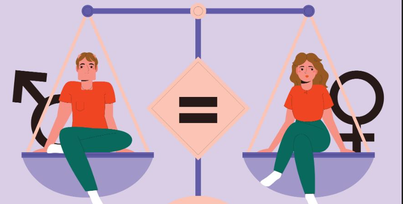
Organisations active in health policy and programming in Nepal are falling short on gender equality, a report shows.
The report titled ‘Gender and Health 50/50 Nepal: Catalysing change for gender equality and health equity’ reveals low levels of transparency and availability of policies and practices in organisations working in health sectors that support gender equality.
The study was carried out by the Center for Research on Environment Health and Population Activities (CREHPA) with the support of Global Health 50/50, assessing 77 organisations, including 47 INGOs and 30 NGOs, on 11 measures of gender equality.
An additional analysis was also conducted of two ministries and three government departments, the report stated.
Despite Nepal’s Constitution and several other pieces of recent legislation that aim to protect the rights of women, the study carried out on NGOs and INGOs operating in Nepal, reveals low levels of transparency and availability of policies and practices that support gender equality.
Of the 30 NGOs reviewed in the study, only two had a workplace gender equality policy that was publicly available.
The report argues for the urgent need to support NGOs to develop and publish workplace policies that enable gender equality.
The findings demonstrate that there is a significant room for improvement across the four domains of gender equality assessed.
Commenting on the report findings, Dr Mahesh Puri, Co-Director of CREHPA and co-author of the report, said, “This study has revealed that NGOs and INGOs are far from achieving transparency for gender equality.”
“Few organisations are publishing workplace policies that support women’s career paths and provide equal opportunities.
These policies need to be publicly available, not only to bring about transparency but also to hold these organisations to account for their public commitments,” he added.
Workplace policies for gender equality, diversity and inclusion promote and support better workplaces while also facilitating career progression for women and other underrepresented groups, said Dr. Puri.
Of the 47 INGOs reviewed, the study found three workplace gender equality policies and two diversity and inclusion policies specific to their operations in Nepal (as opposed to global policies).
More than half of maternity policies reviewed provide fewer weeks of paid leave than what women are entitled to by law as laid out in the Safe Motherhood and Reproductive Health Rights Act 2018 – demanding urgent attention to ensure that workplace policies are up-to-date, the report added.
There are gaps in gender parity of leadership and management position. The findings show that women continue to be underrepresented at the highest level.
“One third of NGOs were led by women. Male leadership dominates in the government departments assessed despite commitments in the Constitution to promote the appointment of women in civil service,” the report shows.
“The senior management of the Ministry of Health and Population was highly gender unequal with 89 percent (25 out of 28) men,” The senior management of the Ministry of Women, Children, and Senior Citizens was at gender parity (54 percent men and 46 percent women) at the time of data collection (June 2021),” the report stated.
Only two-fifths of the country offices of INGOs were led by Nepali nationals, suggesting a lack of support for their career progression within global organisations.
Gender-transformative programming is central to addressing inequities in health outcomes. However, nearly one in three Nepal NGOs have gender-blind programmes.
This is in comparison to just 4 percent (2/47) of the Nepal-based programmes of the global organisations that were found to be gender-blind.
Reflecting on the report, Global Health 50/50 co-directors, Professors Sarah Hawkes and Kent Buse, said the study has opened up new possibilities for understanding gender equality in national contexts.
They also asked to use this data to demand gender equality and health equity.
Source : TRN,






